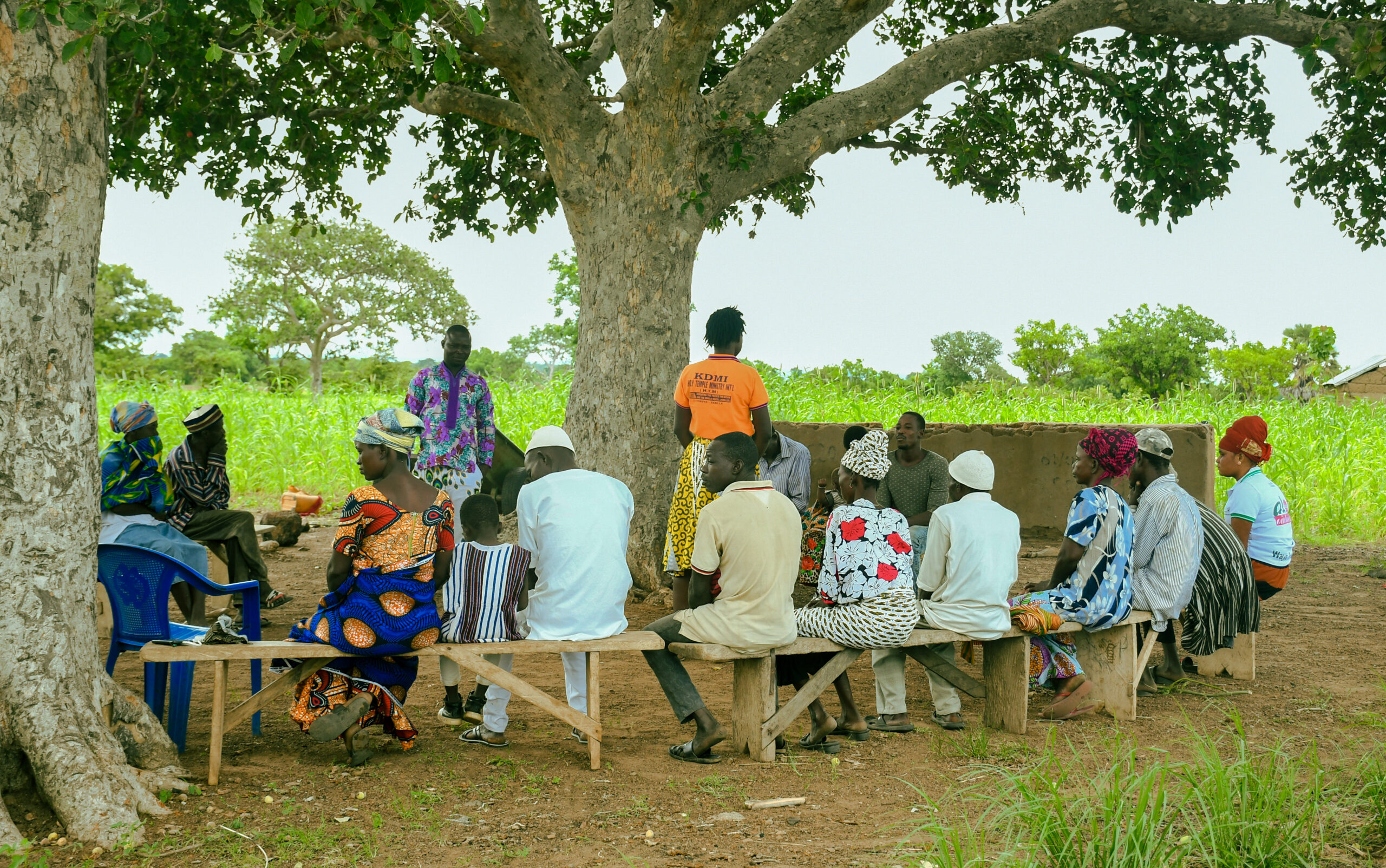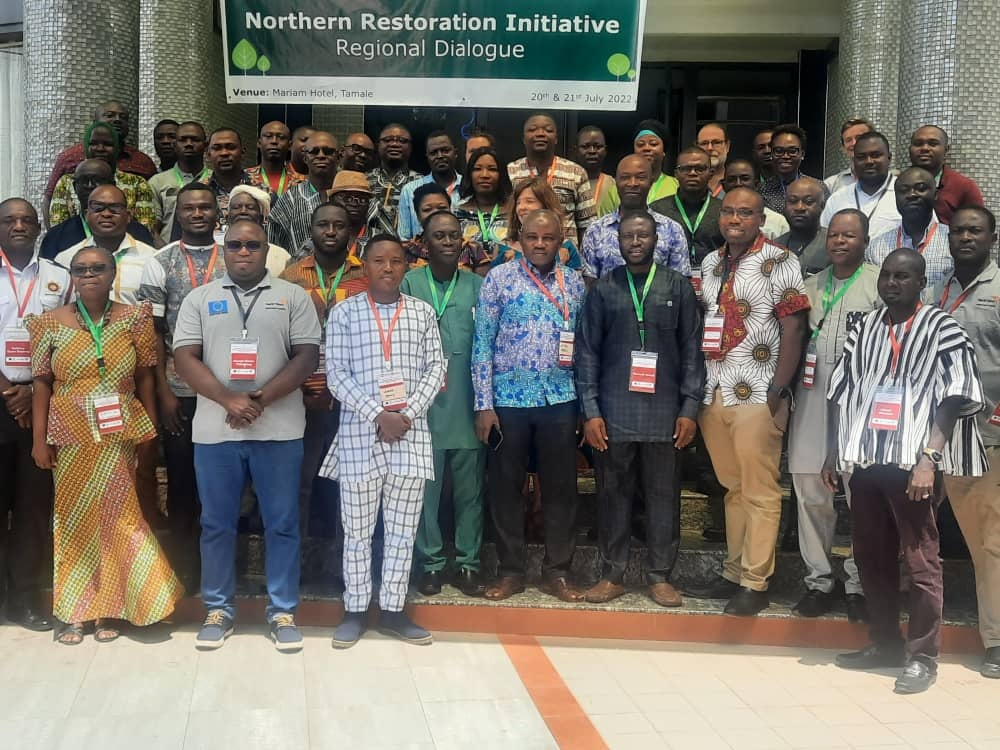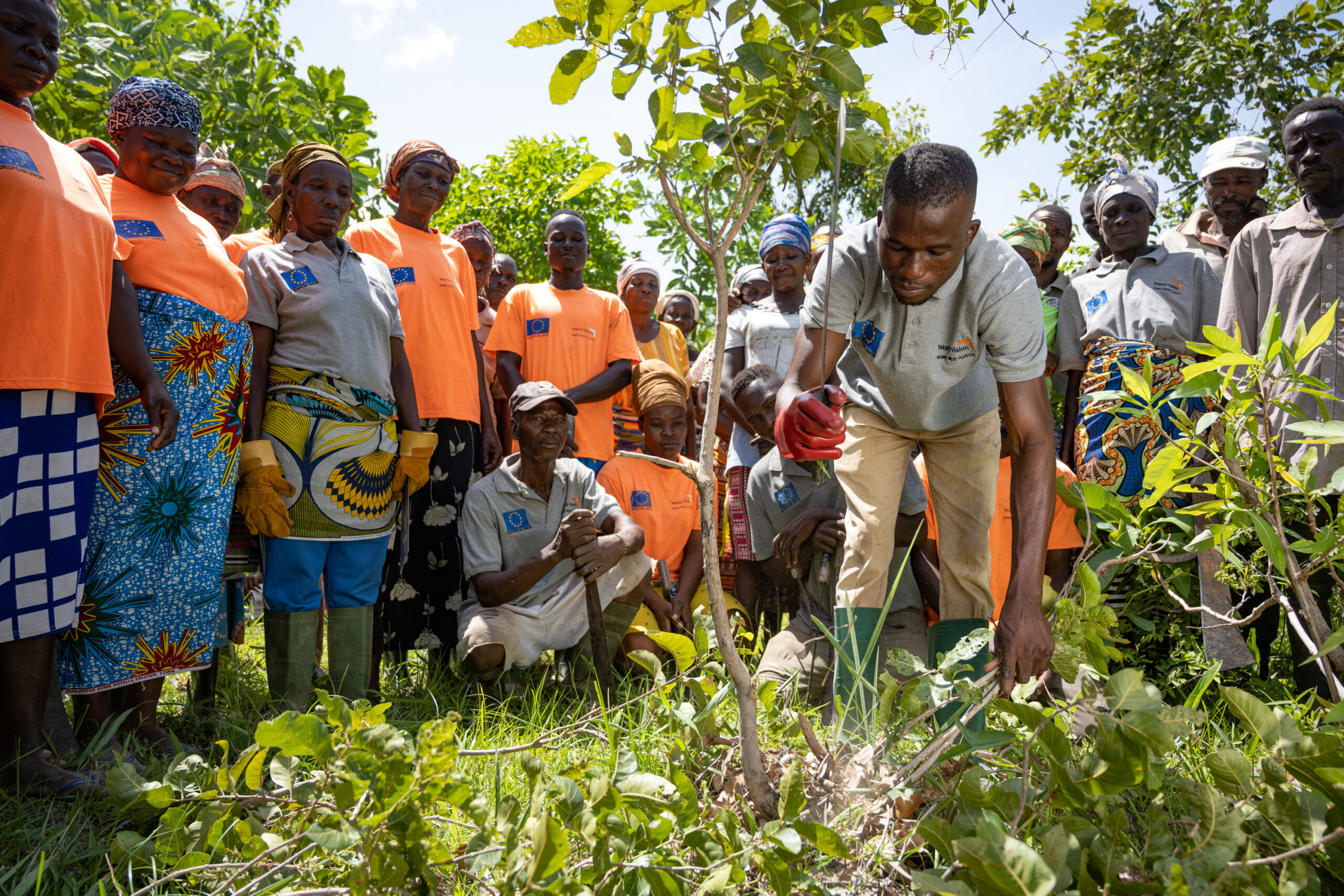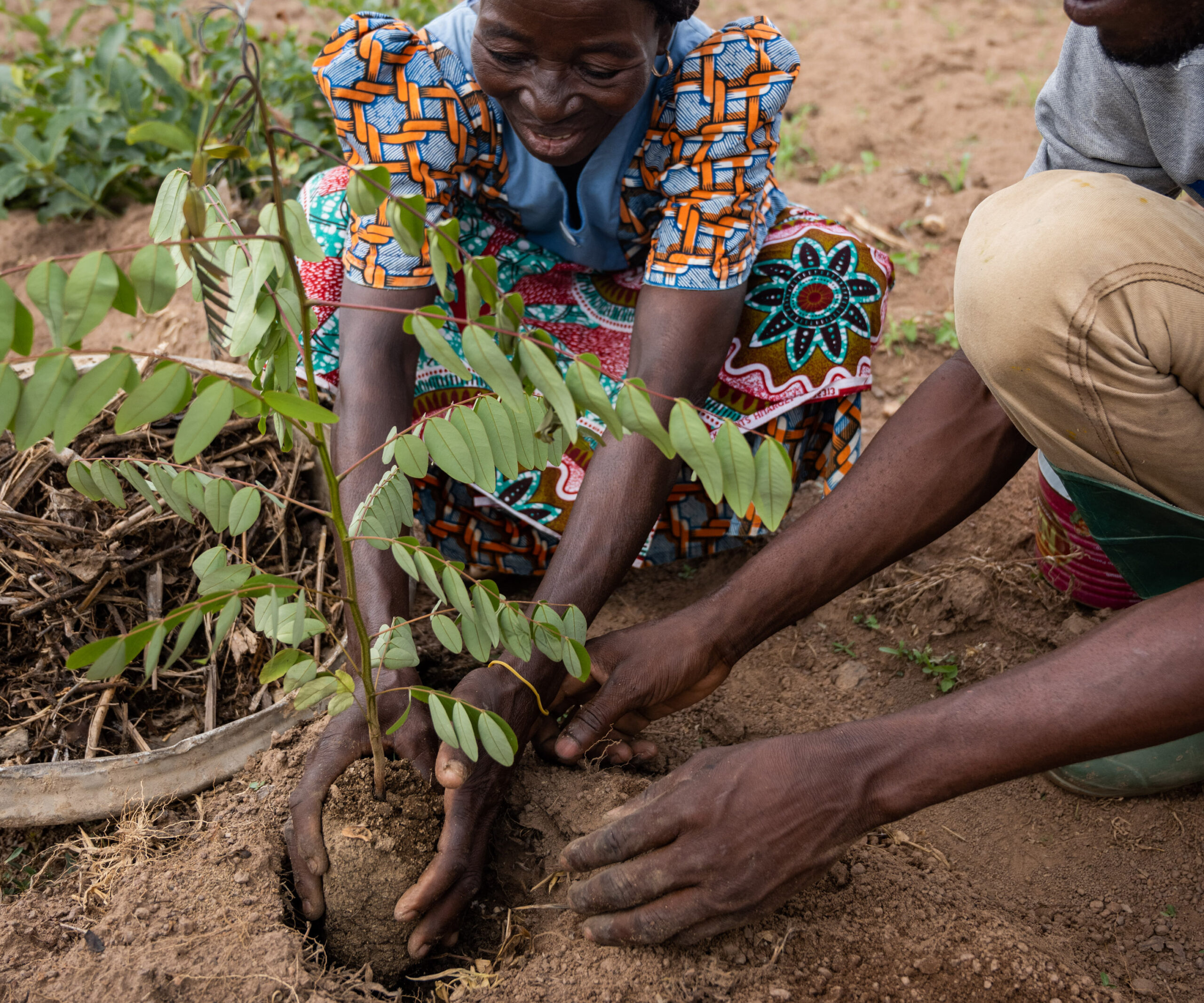Ghana
Regreening Africa’s goal in Ghana is to create a sustained approach to reversing land degradation and integrating food production through agroforestry.
Regreening Africa addresses pressing challenges in Ghana’s savannas: extreme and prolonged dry seasons, overgrazing, uncontrolled fire, declining tree cover, loss of indigenous biodiversity and increased soil infertility.
Highlights
Regreening targets
90,000 hectares
40,000 households
Sites
Upper East Region: Bawku West and Garu Tempane districts
Northern Region: Mion District
Partners
World Vision Ghana
Catholic Relief Services
ICRAF Sahel
National and Local Government Agencies
Local Communities
Approaches to reversing land degradation
Level 1: Direct interventions with the communities in three districts
- Introducing Farmer-Managed Natural Regeneration (FMNR) to farmers and communities.
- Training of lead farmers, peer-to-peer farmers and farmers’ groups to champion scale expansion of Farmer-Managed Natural Regeneration and other agroforestry practices.
Level 2: Interactions with policy makers through multi-stakeholder campaigns and advocacy strategies
- Local champions and community leaders lead the process of communicating the benefits to policy-makers to encourage scale expansion.
- National-level multi-stakeholder workshops through the SHARED process to influence policies and practices in favour of land restoration.
Project sites
- Bawku West District
- Garu-Tempane District
- Mion District
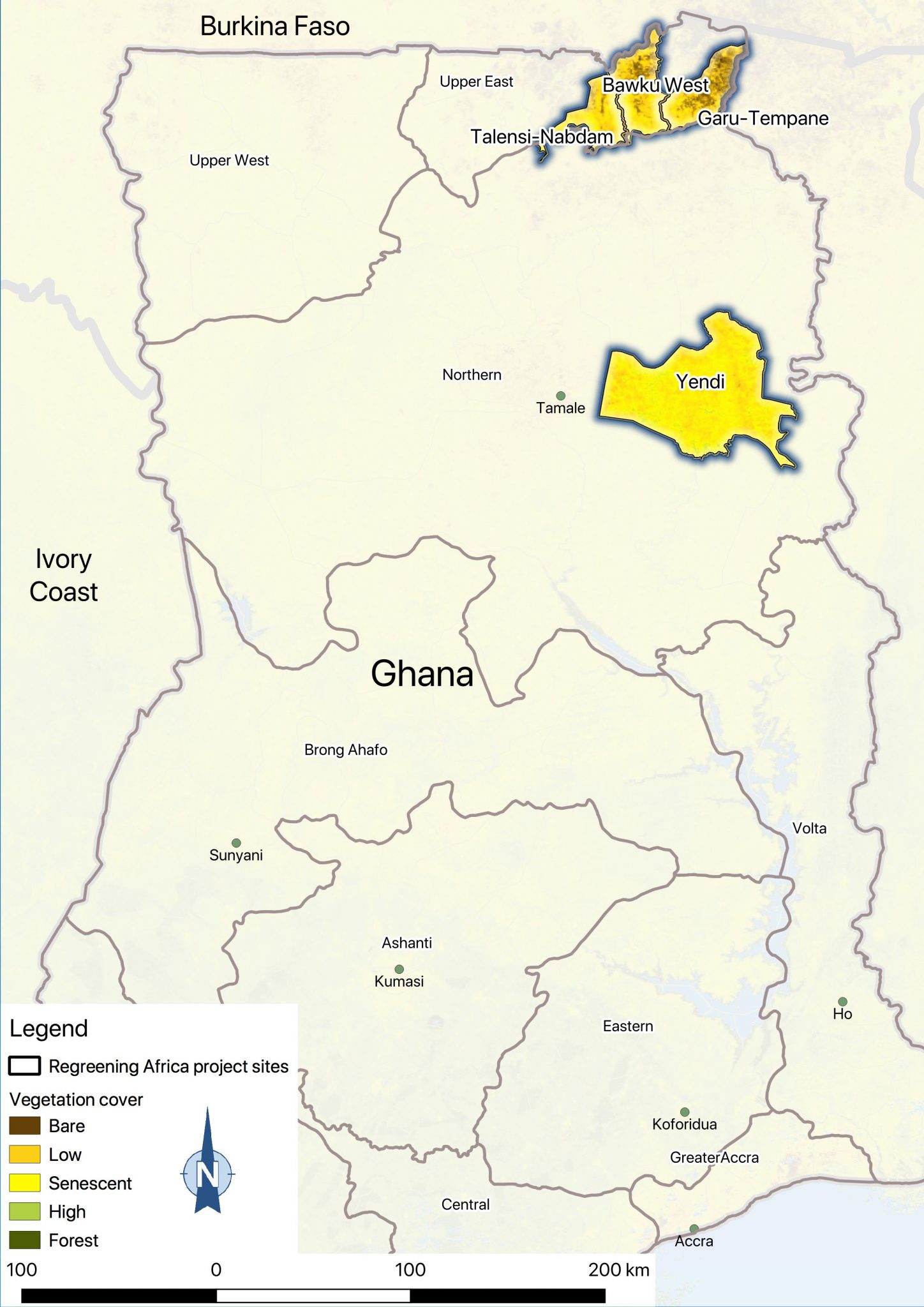
Expected impact
- Improved livelihoods, food security, and resilience to climate change
- Restored ecosystem services, particularly, through sustainable land management
- 80,000 households supported with viable and inclusive regreening options
- New evidence on the effectiveness of regreening generated to inform policy and practice
- Farmers, governments and civil society organizations equipped with new knowledge, skills, tools and resources to support regreening
- Regreening successes compiled and communicated to policy-makers, governments and others
The Northern Ghana Restoration Initiative
BACKGROUND
The National Regreening SHARED workshop held in Tamale in 2018 highlights the urgent need for improving the coordination of the numerous public-led, donor-funded and private programs operating in northern Ghana in the area of landscape restoration, food security and community resilience. Adequate coordination and engagement of all relevent stakeholders are critical to improve the planning, design, implementation of interventions and to generate evidence and share learning. This is particularly important so as to achieve the desired impact and the long-term sustainability of landscape restoration interventions to support the Government of Ghana achieve its commitment under the Bonn Challenge and the African Forest Landscape Initiative to restore 2 million hectares of degraded lands by 2030.
The Nothern Ghana Restoration Initiative (NRI) specifically aims to support the design and implementation of strategies and policies that are aligned and coherent with the savannah mosaic landscape contexts.
DESIRED OUTCOMES
- By 2030, we, the people of the Northern Region of Ghana, will be living and working in regenerative landscapes that have restored ecological integrity and provide ecosystem benefits and services.
- Resilient livelihoods and well-being will be sought from sustainable agriculture, livestock, forestry and agroforestry that contribute to diverse and connectes value chains and our capacity for supportive local savings and loans.
- Our cultural belief system will be associated with our commitment to land restoration and promote the importance of collaboration among indigenous people, men, women, youth and elders and their collective restoration practices.
- Our governance system draws upon traditional and formal structures, will be well coordinated, supports the inclusion of all stakeholders through multi-stakeholdere platforms and promotes and implements policies that result in sustainable landscape restoration for Nothern Ghana.
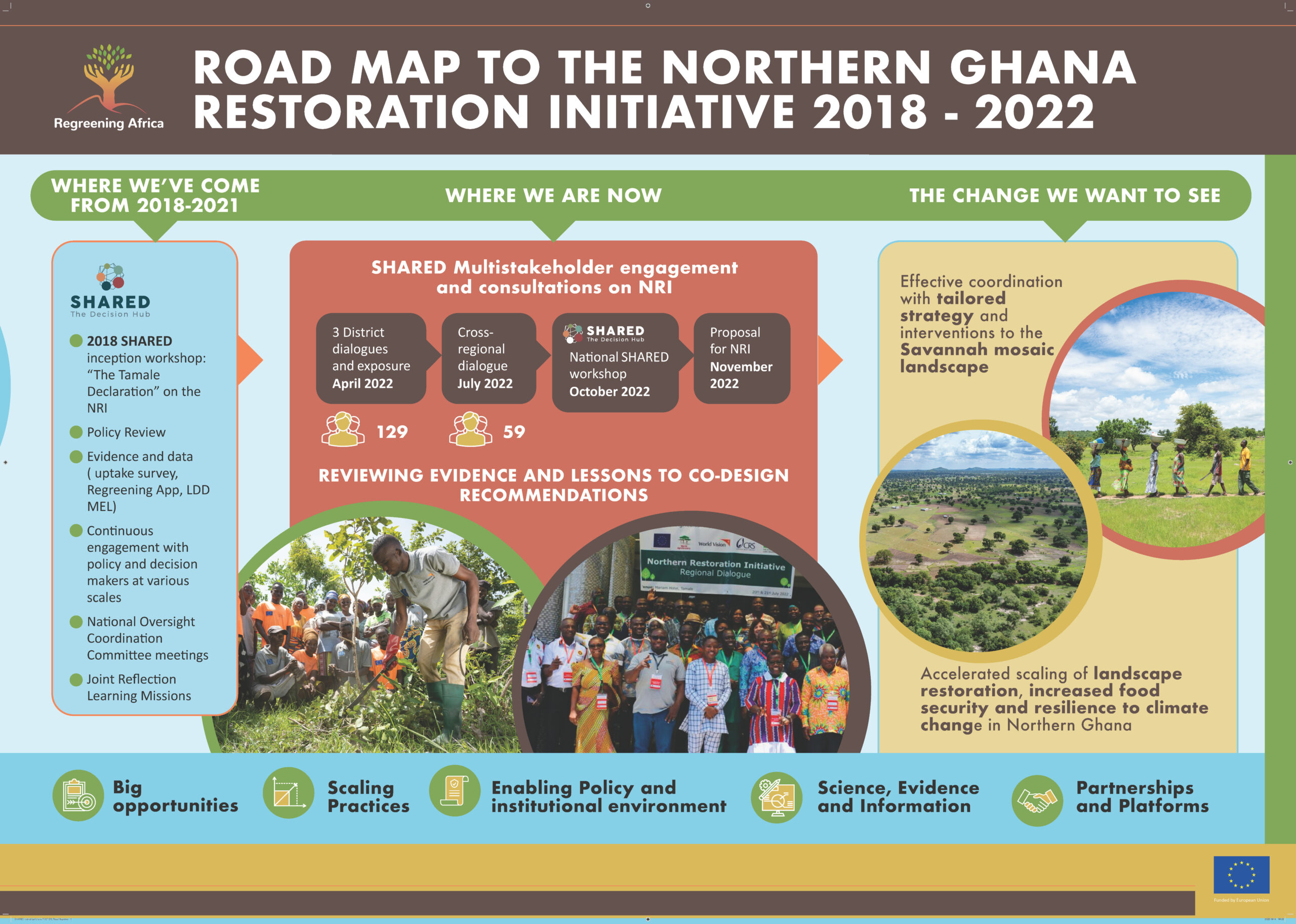
Inclusive and Evidence Based Approaches to Scaling Land Restoration Engagement Workshop in Ghana
“Inclusive and evidence-based approaches to accelerating landscape restoration” was the theme of a two-day SHARED (Stakeholder Approach to Risk Informed and Evidence-based Decision-making) workshop held on the 21st and 22 October in Accra and organised by the Regreening Africa Project in Ghana implemented by World Vision Ghana and Catholic Relief Services and led by CIFOR-ICRAF (Centre for International Forestry Research and World Agroforestry) with funding from the European Union. The event brought together seventy one international, national and regional partners from government agencies, civil societies, farming communities and academic institutions. One of the principal objectives was to review the Regreening Africa Program successes and learning and discuss the implications of the evidence and experiences gathered during almost five years of project implementation in Bawku West and Garu Tempane in Upper East and in Mion district in the Northern Region of Ghana.
Contact details
World Vision (WV)
Edward Akunyagra
Project Manager
Edward_Akunyagra@wvi.org
World Agroforestry Centre
Gloria Adeyiga
PhD Research Fellow & ICRAF Focal Point Person
gloriaadeyiga@gmail.com
Catholic Relief Services (CRS)
Philip Atiim
Project Manager
philip.atim@crs.org

